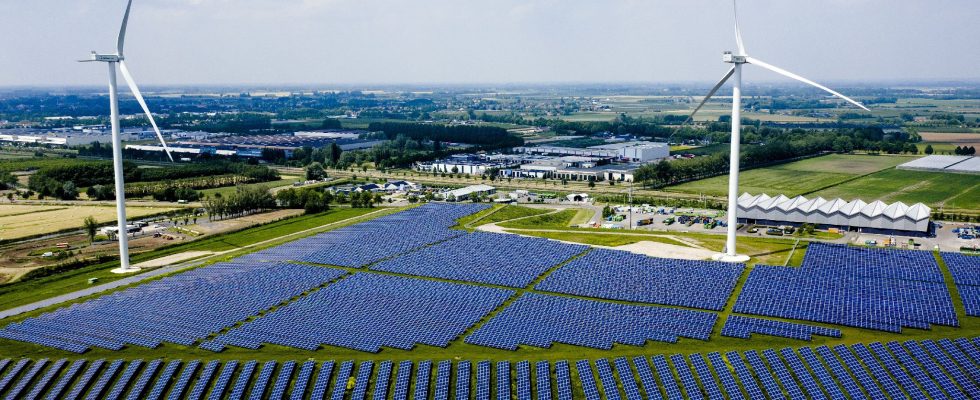“Tax is good for everything”, this is what the public authorities have often summed up when faced with a large expense. To finance the energy transition, France Stratégie, the analysis office that whispers in the ears of Prime Ministers, has suggested “a dedicated levy, explicitly temporary […]sitting on the financial assets of the wealthiest households”. Through the voice of the economist and co-author of the Jean Pisani-Ferry report, the ISF that had been thrown out is coming back through the window, but this time in a “green” version. Expected revenue: 5 billion euros per year. The former head of Emmanuel Macron’s economic program in 2017 also recommends increased recourse to debt. For a good cause, the debt of the State would thus increase by 10 points of GDP in 2030, 15 points in 2035 and 25 points in 2040.
The Minister of the Economy hastened to sweep away these two avenues of reflection. So, by what means to attack the northern face of the transition, which would be equivalent to additional investments, public and private, estimated at 70 billion euros per year in France? Bruno Le Maire talks about the Green Industry bill, a factor in decarbonizing the sector via a new tax credit. He wants to tax polluting vehicles more, better direct the savings of the French, and also relies on the mobilization of the European Investment Bank (EIB). Banco!, replies Grégoire Chauvière Le Drian, head of the French office of this European Union (EU) public lender: “We are the climate bank, the first to have disengaged from fossil fuels. We devote more than 50 % of our activity to the financing of projects contributing to the fight against climate change and we will further accelerate in this area.” The EIB finances to the tune of 70 billion euros per year for infrastructure, research, renewable energy projects… “It is a form of European response to the American IRA without the tools mobilized costing a single euro to the taxpayer!” continues his representative. The European body indeed raises funds on the financial markets.
The private to the rescue
What about the contribution of the private sector, were some financial players surprised when reading the prose of France Stratégie? “Faithful to his previous work, Jean Pisani-Ferry considers above all that it is a matter of public expenditure […]. Private finance is completely absent from this report, neither to take into account its contribution, nor to imagine incentives or interactions with public finance. […], nor to demand an in-depth transformation of its operation”, lamented the boss of the asset manager Mirova, Philippe Zaouati, on LinkedIn. And yet, “we have the capacity to be a relay for the dissemination of the collective effort , maintains Antoine Sire, Director of Corporate Engagement at BNP Paribas. We already finance more renewables than all fossil fuels combined.
For the former boss of the CAC 40 Guillaume Poitrinal, today at the head of the promoter of wooden offices WO2, “the transition to a low-carbon civilization will pass through companies. The Franco-French idea that the State is the only one who can create the conditions for a metamorphosis is over”. And to drive the point home: “We must not tax capital, we must put it to work to allow companies to make the transition, which can create growth.” This “climate ISF” does not convince either Eric Chaney, economic adviser to the Institut Montaigne. Mandatory levies are already very high in France, and the targeted heritage is largely invested in the national economy, he recalls. As for the temporary nature of this tax, it is difficult to take credit for it given past experience. Above all, this former chief economist of Axa regrets that “the report ignores an operational and remunerative mechanism, that of the EU carbon market. It already concerned the most polluting industries and will soon extend to building and transport. Concretely , this will result in a carbon price on fuel and the use of fossil fuels”. Enough to encourage the private sector to make the necessary decarbonization investments.
“Public policies must complement this system”, recognizes Eric Chaney, who suggests that the amounts collected by the States in respect of carbon quotas be redistributed to the populations, as in Austria: “One could imagine that such a check would be reserved for low income.” A good way to make everyone aware of the issue.
